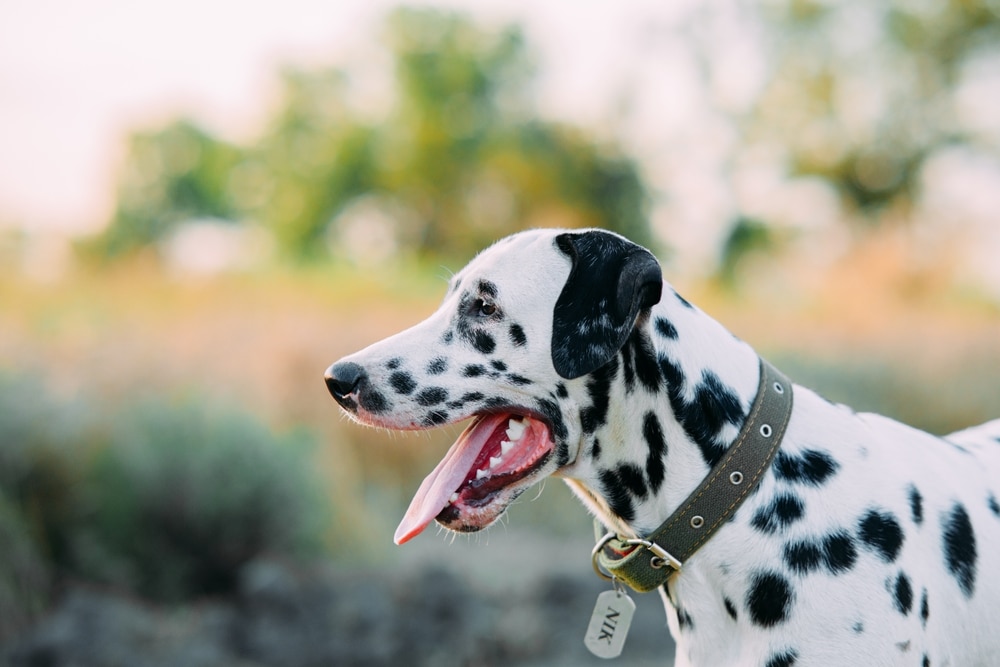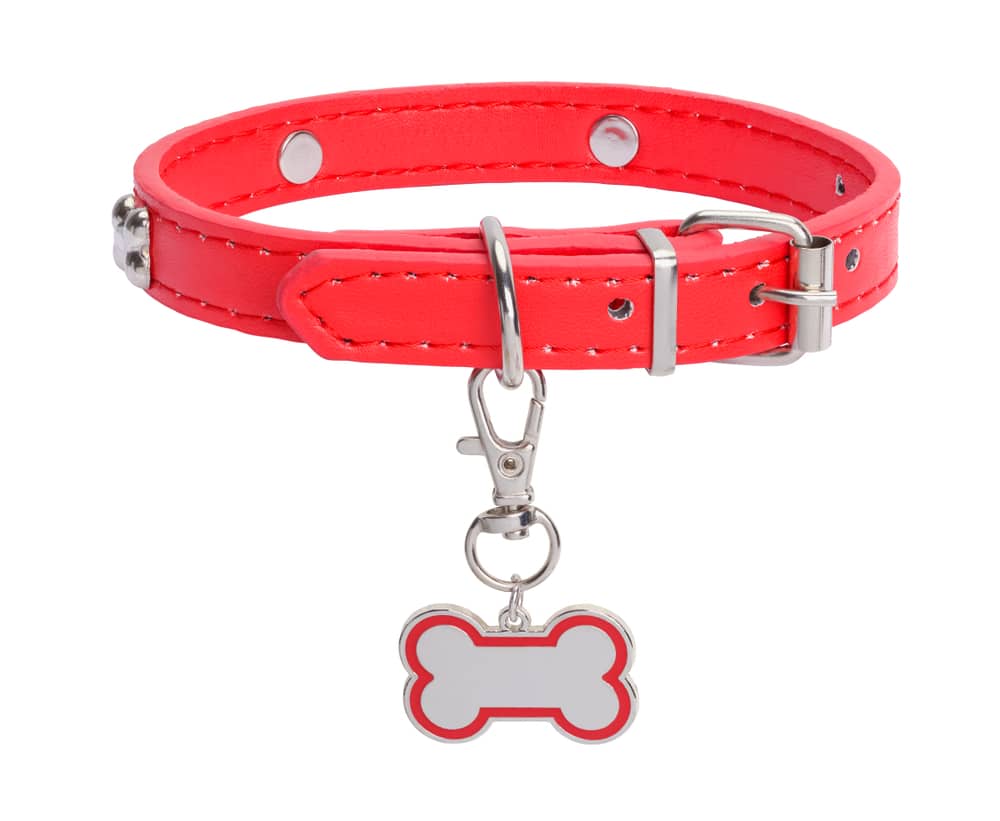Dogs provide love and happiness to their families but require special care to stay safe and healthy. One of the most important components of caring for your dog is ensuring they have a proper collar. But why do dogs need collars? What do collars provide for our four-legged friends that make them such a necessary accessory?
Dogs need collars for identification, control, safety, and style. Collars can carry tags with a dog’s name, important contact information in case the pet gets lost, and other pertinent details, such as any medical conditions or allergies the animal may have. A collar can provide added control when attached to a leash or chain during walks or training sessions.
Table of Contents
What Are The Purposes Of A Dog Collar?

Dog collars are an essential tool for responsible pet owners, providing a range of benefits and purposes. Some of these purposes are as follows.
Identification
Dog collars offer a secure and visible way to identify your furry friend. Attached identification tags (dog tags) typically include the pet’s name, owner contact info, vaccinations, and microchip registration, ensuring quick recognition if your pet ever goes missing or gets found by an unfamiliar person.
Training And Control
Dog collars are essential for training and controlling your pup. Leashes can be attached, allowing owners to keep their pets safe while outside or playing. Collars can also help discourage undesirable behaviors like barking or running away. They’re invaluable tools for responsible dog ownership.
Fashion And Decoration
Collars can be stylish accessories for your pup, often decorated with charms or other accessories to reflect their personality. Some collars also feature reflective material to help keep your pet safe during nighttime walks. With the right collar, you can give your furry friend a fashion-forward look that stands out.
Health And Safety
Dog collars can serve practical purposes such as GPS tracking too. They come in various sizes and designs to reflect each pet’s personality. Medical alert collars provide vital information on a pet’s health, and GPS helps quickly reunite with family in case a pet goes missing.
Attaching A Leash Or Harness
Collars are necessary to attach a leash or harness when taking your pet on a walk. Training collars can help ensure effective communication and training, while shock collars keep pets from roaming away. All collars should be comfortable yet snug to allow breathing and panting.
What Factors Should Be Considered When Choosing A Collar For A Dog?
Selecting the right collar for your dog is an important decision that should not be taken lightly. When it comes to choosing a collar for your canine companion, several factors must be taken into consideration, such as the following.
Type Of Collar
Different breeds of dogs require different types of collars. Consider the size and temperament of your dog when selecting a collar. If you have a large, active breed, for example, a strong, durable collar is necessary. For small breeds that are less likely to pull on their leash, look for more lightweight materials such as nylon or leather.
Fit And Comfort
Make sure the collar fits your dog comfortably. It should be snug but not too tight. It’s also important to ensure the buckle or clasp of the collar is secure and won’t come undone easily. If you have a larger breed, consider adjustable collars with extra buckles for added security as well.
Durability
Look for a collar that’s made from strong, durable materials like nylon or leather. Inspect all the seams and buckles to make sure they won’t fray or break easily. Choose something reliable and long-lasting to keep your furry companion safe!
Safety Features
Look for collars with safety features like reflective strips and LED lights. This will help keep your pet safe in the dark. Plus, an ID tag attached to their collar is ideal. It makes identifying your pup much easier if they’re ever lost.
Cost And Design Options
Compare the cost and design of collars to find the perfect match for your pup. From a variety of styles and hues, you’ll be sure to express your personality. Shop around for the best deal before buying. Make it special and give them something unique! Go beyond the ordinary with an eye-catching collar!
What Items Can Be Added To A Dog’s Collar For Identification?
Adding items to a dog’s collar for identification can be an important way to ensure the safety of your pet. Below are some common items that can be used for this purpose:
- Name tag with owner’s name, address, and phone number
- Microchip implant
- Rabies tag
- Identification number or barcode
- Emergency contact information (if different from the owner’s)
- GPS tracking device
- Safety light/reflective material for nighttime visibility
- Medical alert tags (indicating allergies, special needs, etc.)
- Personalized charms/engraved plates
- Charms or other items showing the owner’s affiliation with a specific group (e.g. military or outdoor organization)
- Temporary tags for travel purposes or temporary ownership changes
How Often Should A Pet Owner Check And Adjust Their Dog’s Collar?
Pet owners should check and adjust their dog’s collars regularly to provide optimal comfort and safety. Inspections should occur at least monthly or more often if needed.
Make sure the collar is neither too tight nor too loose and that it doesn’t have any damaged pieces. A correctly fitted collar will help keep your pet secure and comfortable.
In Conclusion: Why Do Dogs Need Collars?
Dogs need collars for identification, safety, and comfort. Collars provide a quick way to identify them in an emergency. They can also serve as a form of control when necessary. Additionally, they protect pets from outdoor elements while offering support and comfort. To ensure your pet is safe and secure, you should regularly check and adjust the collar. This helps keep them comfortable and protected.
Have you ever bought a collar for your pup? What tips would you recommend to other pet owners when selecting the perfect collar for their beloved pooch? Let us know in the comments!
